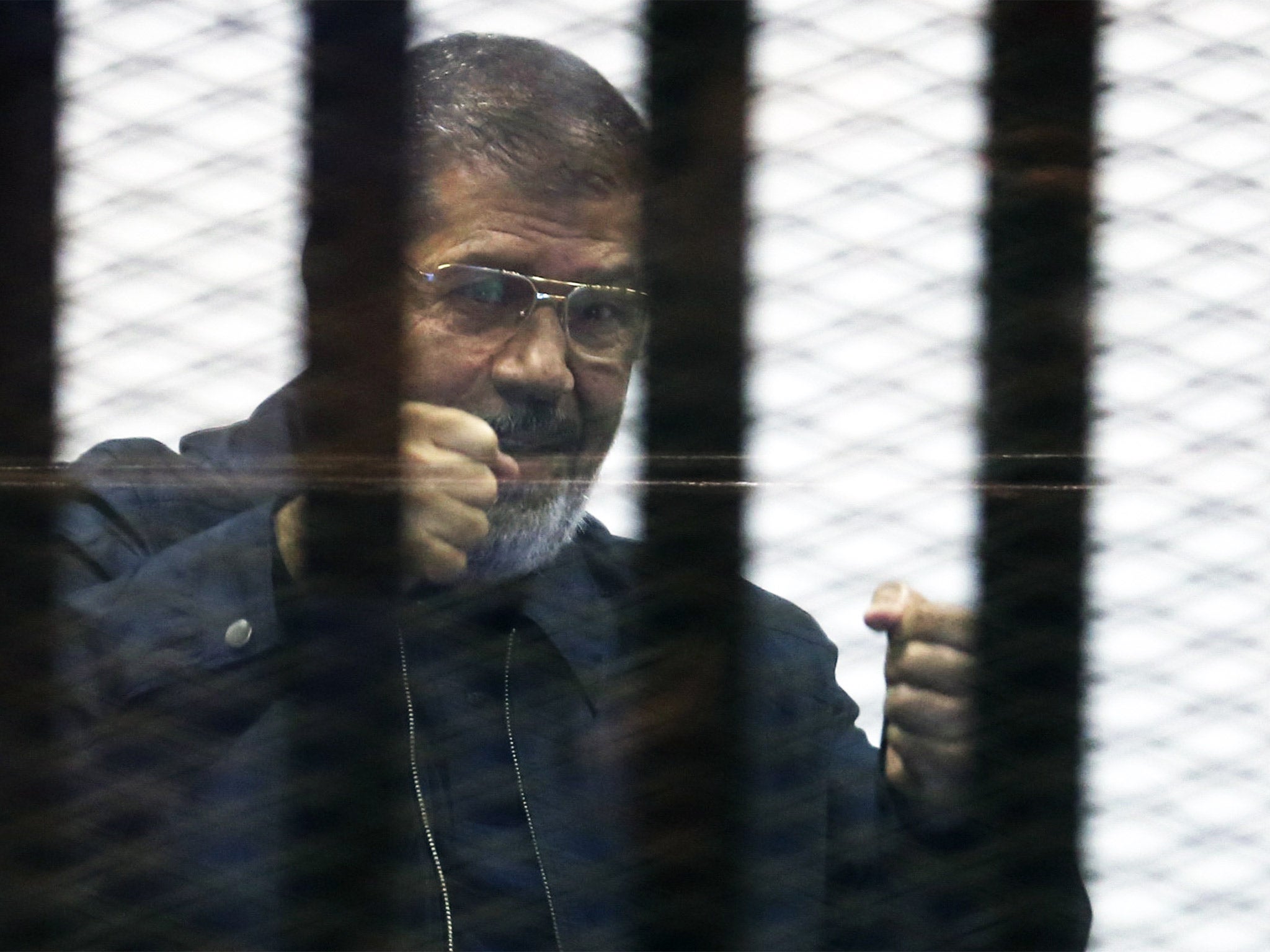Mohamed Morsi sentenced to death: How Egypt's first democratically elected president ended up on death row
Egypt's first democratically elected President was sentenced to death by a Cairo court alongside 100 others

Former Egyptian President Mohamed Morsi has been sentenced to death for his involvement in a mass prison break. But what do we know about the ousted politician?
Who is he?
Mohamed Morsi was the short-lived fifth President of Egypt, holding power from June 2012 until July 2013. The 63-year-old was Egypt’s first democratically elected president but was forced out of office by the military after violent protests broke out under his leadership. He was also a leading member of the Muslim Brotherhood and chairman of the Freedom and Justice Party. Morsi studied engineering in Cairo University then completed his PhD at the University of Southern California. After returning, he became head of the engineering department at Zagazig University before moving into politics.
What has he been found guilty of?
Morsi has been behind bars since his ousting in July 2013. He initially went on trial for allegedly inciting supporters to murder a journalist and two opposition protesters and ordering torture and unlawful detention. He was sentenced to 20 years in prison in April 2015 for ordering torture and detention of protesters but acquitted of murder. On May 16 he was then sentenced to death for his involvement in a mass prison break in 2011.
Why is he so controversial?
Critics associate Morsi and his Muslim Brotherhood with imposing Islamist views on the country’s secular policy. He has been called hard line in his approach – not flinching in having his opponents detained. Many Egyptians voiced disappointment in Morsi after he failed to appoint a promised female vice president and Coptic Christian deputy. Violent clashes that broke out in 2013 were in reaction to the Brotherhood’s rise to power.
However, human rights activists have since accused Egypt of widespread abuses in its on-going crackdown on the Muslim Brotherhood and its supporters. More than 1,400 people are thought to have been killed since the military ousted Morsi. The former military chief, Abdul Fattah al-Sisi became President in what some called a backwards step for democracy in Egypt. Morsi has rejected the authority of the courts and shouted there had been a “military coup” from the dock. He has been made to sit in a soundproof cage in court since then. The death sentence has been handed out liberally since Morsi left office, with 1,200 sent to the grave in two mass trials alone. The UN has called the fairness judiciary system into question.
Amnesty International released a statement following the ruling, which called for a re-trial. "This verdict shatters any remaining illusion of independence and impartiality in Egypt’s criminal justice system," said Hassiba Hadj Sahraoui, Deputy Middle East and North Africa Director.
"Convicting Mohamed Morsi, despite fundamental flaws in the legal process and what seems to be at best flimsy evidence produced in court under a gag order, utterly undermines this verdict," she added.
What happens now?
After being handed a death sentence, Egypt’s highest religious authority – the Grand Mufti – will be consulted on his opinion on Morsi’s fate. The former leader can appeal and was sentenced to execution alongside 100 others.
Join our commenting forum
Join thought-provoking conversations, follow other Independent readers and see their replies
Comments
Bookmark popover
Removed from bookmarks